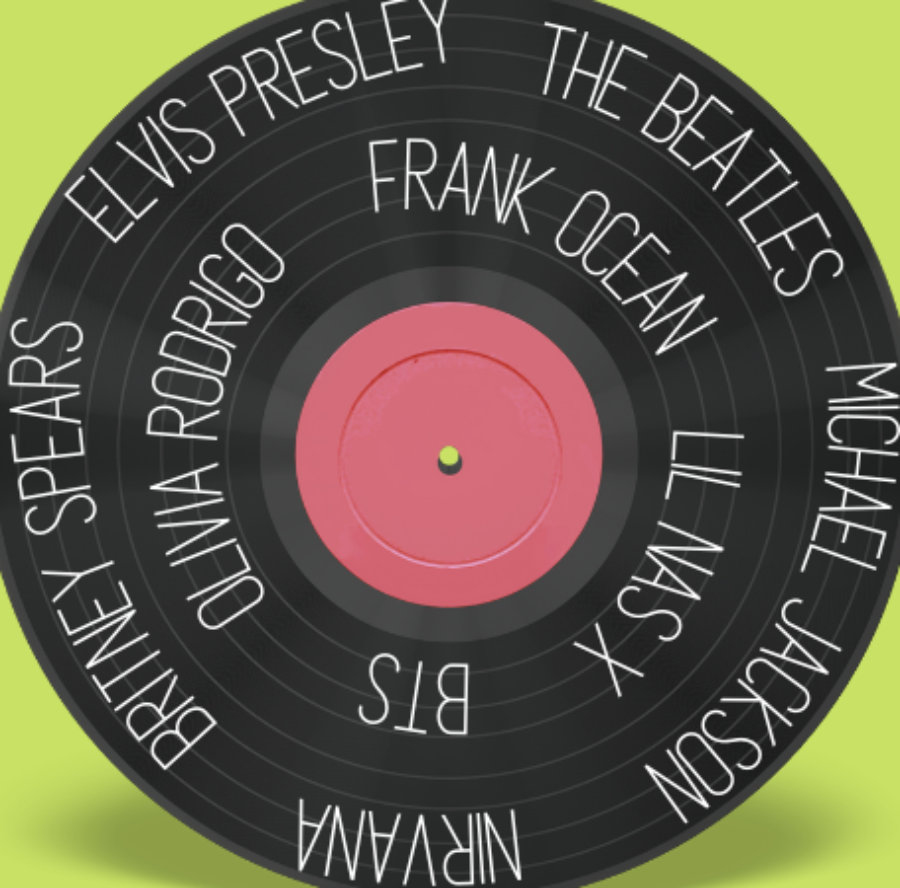
Music tastes change with the times. Every generation adopts a taste in music that is starkly different from that of previous ones. Though the dynamic nature of music creates a distinct sound of each generation, it has inadvertently widened the gap between coexisting generations.
Music is a medium that ebbs and flows with popular culture, an ever changing part of society.
In the 1950s, Elvis Presley introduced Americans to rock ‘n’ roll, reflecting a desire among teens to rebel against adult authority. The Beatles Invasion in the 60s brought foreign flair to the world of mainstream music.
The spread of disco in the 70s turned John Travolta into an icon, and Michael Jackson saw tremendous success in the 80s, challenging established norms. The music of the 90s, like Nirvana’s “Smells Like Teen Spirit,” brought back rock ‘n’ roll in a new form by ridiculing society’s values. By the late 90s, artists like Britney Spears and NSync dominated the pop music scene with their sexual lyrics and innuendo.
The sound of Gen Z is more inclusive, diverse and genreless than ever before. BROCKHAMPTON is a group of 15 people from various backgrounds, artists like Frank Ocean and Tyler the Creator are out and open about it and Kpop groups like BTS and Blackpink have attracted a large fanbase in the US.
In every new generation, music tastes undergo a rebirth. But music is embedded in many facets of life – politics, fashion, identity, entertainment and more. The values that today’s music represents are not always universally accepted. Music today, rather than a universal language, has become a language not all people are fluent in – a language that has not translated well across generational lines.
In the era of Gen Z music, young people often feel that their tastes in music are simply not understood and are left contemplating, “Why do my parents and grandparents not understand my taste in music?”
Junior Lauren McGovern has noticed that older generations have not resonated with the popular music of today’s generation. “Trap music is a relatively new genre that has taken Gen Z by storm – it’s energetic, fast paced, and so far from anything done in past generations,” she said. “From my experience, I feel like older generations don’t like the electric component to this type of music, the profane language, and they feel like the lyrics have no meaning.”
Trap music is undoubtedly an acquired taste. Whether this is because it is starkly different from styles of the past or because of its profane lyrics, trap music has not garnered the same support from older generations.“It all sounds the same,” “It’s not real music,” “It’s too violent,” are among many phrases used by older generations to describe this genre.
Similarly, other genres do not hold the same relevance for a group of people who have already experienced their young-love or first heartbreak. Pop music today is not usually written for this demographic. For instance, Olivia Rodrigo’s debut album “Sour” tells the story of heartbreak and young love, experiences that are not directed towards older audiences who have already closed this chapter of their lives.
Gen Z music, with its barrier-breaking artists and genres, can be overwhelming to those accustomed to the classics. A baby boomer indoctrinated with Pink Floyd and Led Zeppelin growing up might have a difficult time feeling the same lure towards Lil Nas X’s “Old Town Road,” a unique fusion of country, rap and pop. It is no surprise that older generations have naturally gravitated towards the type of music they grew up with and distanced themselves from what is played on the radio.
Although the music of today may not be universally listened to, there is still hope that perhaps future generations will praise Gen Z’s music for its artistry because after all, good music will always survive the test of time.








